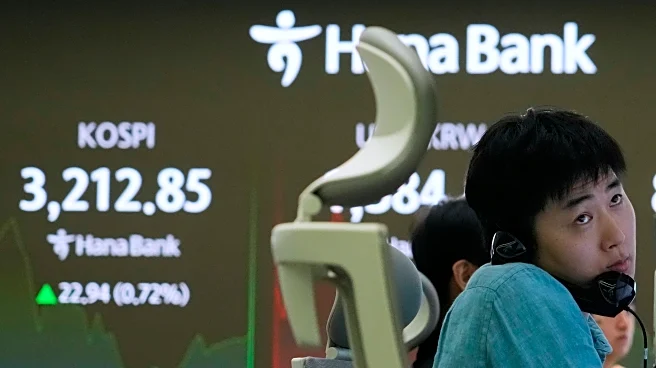Rapid Read • 8 min read
President Trump has announced a 50% tariff on Indian imports, which experts believe could fast-track India's green manufacturing efforts. Despite potential disruptions in sectors like textiles and steel, the tariffs may push India to enhance its production capabilities and focus on renewable energy technologies. India has already achieved significant progress in its decarbonization goals, with 235.7 GW from non-fossil fuel sources as of June 2025. The tariffs are seen as a challenge but also an opportunity for India to strengthen its position in global renewable energy supply chains, particularly in electronics, biofuels, solar panels, and green steel.
AD
The tariffs imposed by President Trump could have a dual impact on India. While they may increase costs for clean technology and disrupt exports, they also present an opportunity for India to redirect products meant for the U.S. to its domestic market, potentially boosting renewable energy deployment at home. India's large domestic demand for clean energy could mitigate the long-term impact of these tariffs. Additionally, the situation may encourage India to develop zero- or low-carbon industrial zones, enhancing its competitiveness in the global market, especially as Europe seeks allies in its net-zero agenda.
India may need to focus on improving its logistics and manufacturing efficiencies to capitalize on this opportunity. The European Union's Carbon Border Adjustment Mechanism, set to take effect in 2026, could further influence India's trade strategies. By investing in green technologies and industrial zones, India could counteract the EU's carbon tax and gain a competitive edge. The tariffs could also prompt India to explore alternative markets and accelerate its green shift, aligning with global trends towards sustainable energy solutions.
The geopolitical tensions and protectionist trade policies could reshape global markets, driving countries to produce more domestically. India's steadfast commitment to its climate goals, despite trade upheavals, highlights its potential to emerge as a leader in the renewable energy sector. The situation underscores the importance of strategic investments in clean technology and manufacturing to navigate the evolving trade landscape.
AD
More Stories You Might Enjoy













